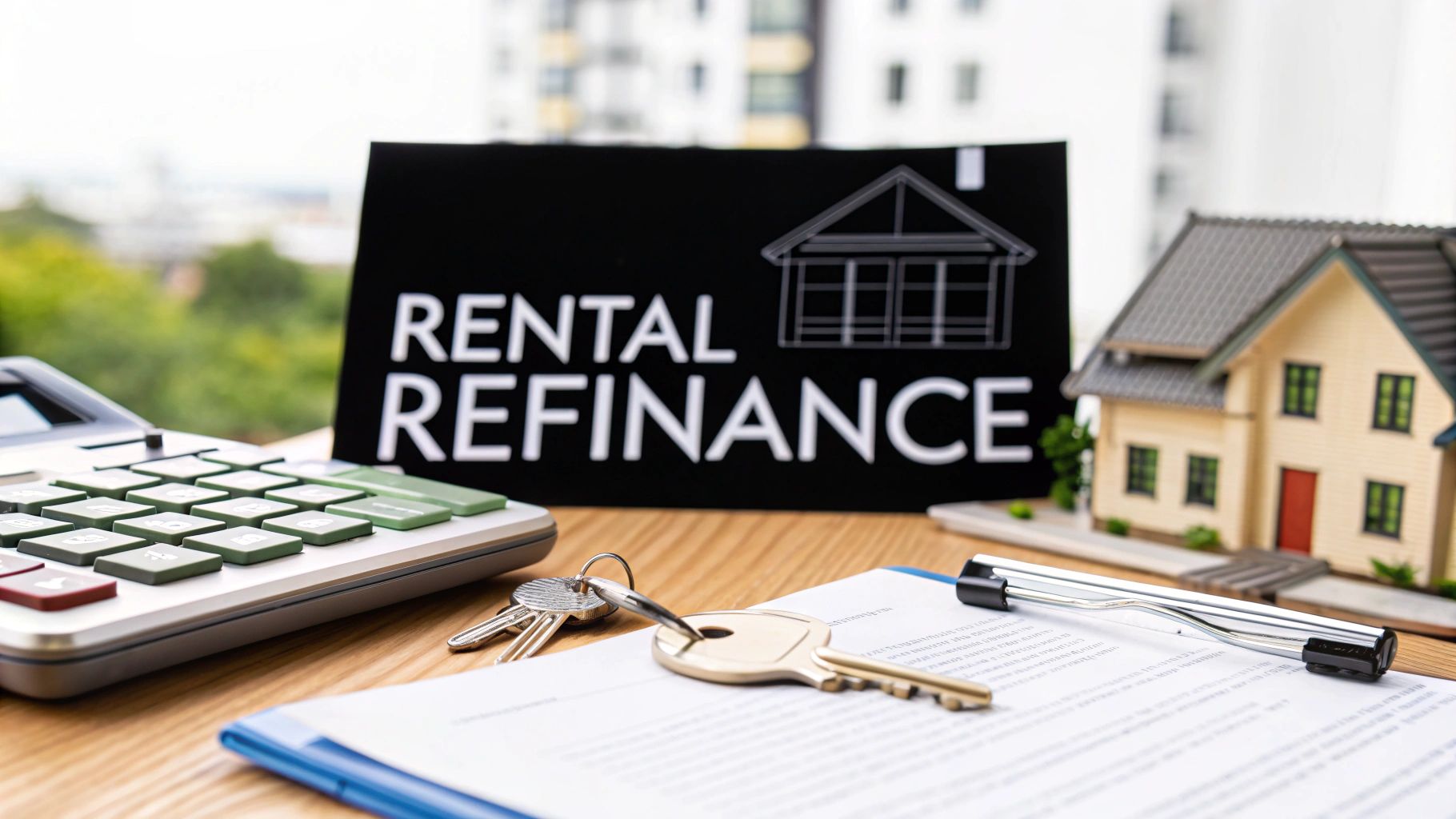Credit - Loan Q&A: How to Buildand Maintain Good Credit?
Credit - Preguntas sobre préstamos: ¿Cómo establecer y mantener unbuen historial crediticio?
Credit -贷款问答:怎样建立和保持良好的信用记录?
September 6, 2025
Many people hope to buy a home when property prices are low and mortgage interest rates are favorable. However, they often lack understanding of the crucial aspects of "credit history" and "credit score" in the mortgage process. Let's talk about what credit is and how to build and maintain a healthy credit score.

Credit - Loan Q&A: How to Buildand Maintain Good Credit?
Many people hope to buy a home whenproperty prices are low and mortgage interest rates are favorable. However,they often lack understanding of the crucial aspects of "credithistory" and "credit score" in the mortgage process. Let's talkabout what credit is and how to build and maintain a healthy credit score.
What is a Credit History and CreditScore?
Lenders typically rely on recordsfrom the three major credit reporting agencies: Equifax, Experian, andTransUnion. Your credit report shows your highest limits, current balances,account opening dates, and payment histories for mortgages, auto loans, studentloans, credit cards, etc.
A credit score is calculated by eachof the three agencies based on your credit history using complex algorithms.Each agency produces a separate score, making a total of three. When applyingfor a mortgage, lenders usually refer to the middle score (not the average,highest, or lowest). For credit cards, only one score may be pulled.
A good credit score not only helpswith mortgage approvals but also secures better rates for car loans, creditcards, and more.

Credit Utilization (Credit UsageRate)
Credit accounts fall into three maincategories:
- Mortgage
- Installment Loans (e.g., auto loans)
- Revolving Credit (e.g., credit cards)
The “current balance ÷ credit limit”ratio on credit cards (also called the credit utilization rate) has the biggestimpact on your credit score. It's recommended to keep this below 30%. The lowerthe better.
Don’t stress too much—if younormally use a high percentage, you can just pay off your card balances themonth before applying for a mortgage to see a big score boost. In short: it’sokay to have a low score when not in use, just improve it before you need it.
Late Payments
If you're more than 30 days late onyour mortgage, car loan, or credit card, your credit report will show somethinglike "1x30." For 60 or 90 days late, it becomes "1x60" or"1x90."
- Mortgage late payments hurt more than car or credit card late payments.
- More recent late payments affect your score more than older ones.
Late payment records stay on yourcredit report for 7 years from the first month missed. Even if paid later, therecord remains, though its impact fades over time—especially after 2 years.
Collections
If you fail to repay debt for anextended period (usually over 3 months), it may be transferred to a collectionagency. They’ll typically notify you and give 30 days to verify if the debt isyours. If you don’t respond with proof, the collection becomes valid and getsrecorded on your credit report, significantly lowering your score.
Many believe that paying off acollection erases the damage—it doesn’t. Credit systems treat a paid collectionas a negative item: "A paid collection is still a collection."
For example, an unpaid collectionmay reduce your score by 100 points. Even if paid, it can still drop your scoreby 70+ points. Over time, the effect diminishes. Collection records stay for 7years. Always address collection notices quickly.
Public Records
Since 2018, tax liens and civiljudgments no longer appear on credit reports. However, if they exist, lendersmay still discover them through public records. Bankruptcy records remain onyour credit report for 7–10 years and carry heavy impact. Some federal taxliens can stay for life unless paid off and officially released.
Inquiries (Credit Checks)
Every time you authorize a lender orcredit card company to check your credit (usually when applying), a "hardinquiry" is recorded.
Too many inquiries in a short periodsuggest you’re aggressively opening new accounts, which hurts your score. Somepeople lost over 100 points after dozens of inquiries in a month.
However, self-checks or"promotional inquiries" (used by lenders for marketing) do not affectyour score.
Credit History Length
Your credit history begins when yourfirst credit card is approved. Though your Social Security number may exist inthe system earlier, without a tradeline (credit card, car loan, or mortgage),you won’t have a score.
The longer your credit history, themore stable and favorable it appears. To start building credit, begin with astudent card, a card from your bank, or a secured credit card (requires adeposit).
Some believe not paying off yourcard in full is better—that’s a myth. Paying your full statement on time isbest for your score.
Credit Score Range
Credit scores generally range from300 to 850. While 850 is the theoretical max, anything above 700 is consideredgood. Most mortgage programs won’t differentiate much between a score of 720and 820.
To get an 800+ score, you typicallyneed:
- A long, clean credit history (10+ years)
- No recent inquiries
- No late payments
- A couple of old mortgage or car loan accounts
- 1–2 high-limit cards that are paid off monthly
Summary
You don’t need a perfect score—justone that’s good enough. Pay on time, avoid delinquencies and excessive creditchecks, and keep debt low. A healthy credit record will follow.
If you plan to buy a home or takeout a loan, start preparing months in advance: clear outstanding balances andstabilize your credit score. If you need loan advice, feel free to reach out.We’re happy to help.

· Credit— Borrowed money or your ability to borrow
· Equifax/ Experian / TransUnion — Credit bureaus that keep your credit records
· Credit Score — A number that shows how trustworthy you are with credit
· Credit Utilization — How much of your available credit you’re using
· Mortgage— A loan to buy a house
· Installment Loans — Loans you repay in fixed monthly payments (like car loans)
· Revolving Credit — Credit you can use and repay repeatedly (like credit cards)
· Current Balance — The amount you currently owe on a loan or credit card
· Credit Line / Credit Limit — The maximum amount you can borrow on a credit account
· Late Payments — Payments made after the due date
· Collection Agency — A company that collects unpaid debts
· Public Records — Legal records like bankruptcy or judgments
· Tax Lien — A legal claim by the government for unpaid taxes
· Judgment— A court ruling that you owe money
· Bankruptcy— Legal process for people who can’t pay their debts
· Federal tax lien — A tax lien from the federal government
· Inquiry— A check into your credit report
· HardInquiry — A credit check that can affect your score (usually after applying forcredit)
· PromotionalInquiry — A soft check for marketing purposes that doesn’t affect your score
Credit - Preguntas sobre préstamos: ¿Cómo establecer y mantener unbuen historial crediticio?
Muchas personas desean comprar unacasa cuando los precios están bajos y las tasas hipotecarias son bajas, pero noentienden bien qué es el “historial crediticio” y la “puntuación de crédito” —dos elementos clave para obtener un préstamo hipotecario. A continuación,hablaremos sobre qué es el historial crediticio y cómo construir y mantener unabuena puntuación de crédito.
¿Qué es el historial crediticio y lapuntuación de crédito?
Normalmente, los bancos(prestamistas) se basan en los reportes proporcionados por las tres principalesagencias de crédito: Equifax, Experian y TransUnion. En tu historial crediticioaparecerán detalles como el límite máximo de crédito, el saldo actual, eltiempo de apertura de cuentas y si los pagos se han hecho puntualmente parapréstamos hipotecarios (Mortgage), préstamos a plazos (Installment Loans),tarjetas de crédito (Revolving Credit), entre otros.
La puntuación de crédito (CreditScore) es un número calculado por cada una de estas tres compañías basándose entu historial crediticio mediante modelos complejos. Cada compañía tiene unapuntuación distinta, por lo que hay tres en total. Al solicitar una hipoteca,el banco usualmente toma en cuenta la puntuación intermedia (no el promedio nila más alta o baja). Para las tarjetas de crédito, generalmente revisan solouna de ellas.
Un buen historial crediticio no solofacilita la aprobación de hipotecas, sino que también permite obtener mejorestasas para préstamos de auto y tarjetas de crédito.

Uso de crédito (Credit Utilization)
Los tipos principales de cuentas decrédito son:
• Hipoteca (Mortgage)
• Préstamos a plazos (Installment Loans), como préstamos para autos
• Crédito rotativo (Revolving Credit), como tarjetas de crédito
De estas, la proporción “Saldoactual ÷ Límite de crédito” (Current Balance / Credit Line o Credit Limit),también llamada “tasa de utilización de crédito”, es la que más afecta lapuntuación de crédito. Se recomienda mantenerla por debajo del 30%. Cuanto másbaja, mejor para tu puntuación.
No obstante, no hay que preocuparsedemasiado. Si usas mucho crédito normalmente, con solo pagar el saldo total delmes antes de solicitar la hipoteca, la puntuación suele mejorar mucho. En otraspalabras: mientras no necesites usar la puntuación, no importa que sea baja,pero antes de usarla hay que subirla.
Pagos atrasados (Late Payments)
Si tus pagos de hipoteca, préstamosa plazos o tarjetas de crédito se atrasan más de 30 días, aparecerá unaanotación “1x30” en tu reporte crediticio; si son 60 o 90 días, aparecerá“1x60” o “1x90”.
• Los pagos atrasados de hipoteca afectan más la puntuación que los depréstamos a plazos o tarjetas de crédito.
• Los atrasos recientes afectan más que los antiguos. Por ejemplo, un atraso en2025 tendrá mayor impacto que uno en 2022.
Estas anotaciones permanecen en tureporte crediticio durante 7 años desde el mes del primer atraso. Aunque paguesdespués, la anotación no desaparece de inmediato; su efecto disminuye con eltiempo, especialmente después de 2 años.
Cobranza (Collections)
Si no pagas una deuda durante muchotiempo (usualmente más de 3 meses), puede ser transferida a una agencia decobranza (Collection Agency). Generalmente te enviarán una carta dando 30 díaspara verificar que la deuda es tuya. Si no presentas pruebas dentro de esos 30días, la cobranza será considerada válida (valid) y aparecerá en tu reporte,afectando mucho tu puntuación.
Mucha gente piensa que “pagar lacobranza la elimina”, pero no es así. El sistema considera:
“Una cobranza pagada sigue siendo una cobranza.”
Por ejemplo, una cobranza sin pagarpuede bajar tu puntuación hasta 100 puntos; aunque la pagues, podría seguirbajando más de 70 puntos, solo que el impacto disminuye con el tiempo. Estaanotación también se mantiene por 7 años. Por eso, al recibir una carta decobranza, debes atenderla de inmediato para evitar dañar tu historial.
Registros públicos (Public Records)
Desde 2018, los reportes crediticiosya no muestran gravámenes fiscales (Tax Lien) ni sentencias civiles (Judgment).Sin embargo, si tienes estas anotaciones, pueden seguir existiendo en archivospúblicos y los bancos pueden encontrarlas por otros medios. Las quiebras(Bankruptcy) permanecen en el reporte durante 7-10 años y tienen un impactofuerte. Algunos gravámenes fiscales federales (Federal tax lien) permanecen depor vida, y deben ser pagados y liberados para eliminarse.
Consultas recientes (Inquiries)
Cada vez que autorizas a un banco ocompañía de tarjeta de crédito a revisar tu crédito (usualmente para solicitarun préstamo), se registra una “consulta dura” (Hard Inquiry).
Muchas consultas en poco tiempo son interpretadas como apertura frecuente denuevas cuentas y afectan negativamente la puntuación.
Ha habido casos donde decenas de consultas en un mes redujeron la puntuaciónmás de 100 puntos.
Sin embargo, si tú mismo revisas tucrédito o si las consultas son promocionales (Promotional Inquiry) realizadaspor bancos o compañías para promociones, no afectan tu puntuación.
Duración del historial crediticio(Credit History)
La duración se mide desde que seaprueba tu primera tarjeta de crédito. Aunque tu número de seguro social (SSN)esté en el sistema antes, si no tienes líneas de crédito (trade lines) comotarjetas, préstamos o hipotecas, tu puntuación aparecerá como inexistente. Unhistorial largo es más estable y beneficioso.
Para construir crédito, serecomienda empezar con tarjeta de estudiante, tarjetas de banco o tarjetasaseguradas (Secured Credit Card).
Hay un mito que dice “no pagar todo el saldo para mejorar”, pero la verdad esque pagar puntual y completo es lo mejor.
Rango de puntuación de crédito
La puntuación suele ir de 300 a 850puntos. El máximo teórico es 850, pero puntajes sobre 700 ya se consideranbuenos. La mayoría de productos hipotecarios no hacen mucha diferencia entre700 y 800 puntos.
Para llegar a más de 800 puntos, necesitas:
• Un historial crediticio largo (10 años o más);
• Pocas consultas recientes;
• Sin pagos atrasados;
• Al menos una cuenta de hipoteca y préstamo a plazos con antigüedad;
• Una o dos tarjetas con límite alto y pagos mensuales completos.
Resumen
No es necesario buscar laperfección; basta con tener buen crédito. Paga a tiempo, evita atrasos, nohagas muchas consultas y no tengas demasiadas deudas para que tu historialmejore.
Antes de comprar casa o solicitar préstamo, prepara con anticipación: paga tuscuentas y estabiliza tu puntuación. Si necesitas asesoría, contáctanos,estaremos encantados de ayudarte.

• Credit — Crédito / Préstamo
• Equifax — Equifax (agencia de informes crediticios)
• Experian — Experian (agencia de informes crediticios)
• TransUnion — TransUnion (agencia de informes crediticios)
• Credit Score — Puntuación de crédito
• Credit Utilization — Utilización de crédito
• Mortgage — Préstamo hipotecario
• Installment Loans — Préstamos a plazos
• Revolving Credit — Crédito rotativo (ej. tarjeta de crédito)
• Current Balance — Saldo actual
• Credit Line / Credit Limit — Límite de crédito
• Late Payments — Pagos atrasados
• Collection Agency — Agencia de cobranza
• Public Records — Registros públicos
• Tax Lien — Gravamen fiscal
• Judgment — Sentencia judicial
• Bankruptcy — Quiebra
• Federal tax lien — Gravamen fiscal federal
• Inquiry — Consulta crediticia
• Hard Inquiry — Consulta dura
• Promotional Inquiry — Consulta promocional
Credit -贷款问答:怎样建立和保持良好的信用记录?
很多朋友希望在房价低迷、房贷利率低的时候买房,但对房贷中非常关键的“信用记录”和“信用分数”了解不多。下面我们就来聊聊什么是信用记录,以及如何建立和维护一个良好的信用分数。
什么是信用记录和信用分数?
通常银行(Lender)依赖的是三大信用报告机构提供的记录:Equifax、Experian 和 TransUnion。你的信用记录里会显示你在房贷、车贷、学生贷款、信用卡等方面的最高额度、当前余额、开户时间、还款是否准时等信息。
信用分数(Credit Score)就是这三家公司根据你这些信用记录,通过复杂的模型计算出来的一个分数。每家公司一个分数,总共三个,申请房贷时银行通常参考中间的那个分数(不是平均值,也不是最高或最低)。申请信用卡时,通常只查其中一个。
信用记录好,不仅有助于房贷申请,车贷、信用卡等也能获得更优惠的利率。

信用卡余额与额度的比例(Credit Utilization)
信用账户主要分为三类:
- Mortgage(房贷)
- Installment Loans(分期贷款,如车贷)
- Revolving Credit(循环信用,如信用卡)
其中信用卡的“当前余额÷ 信用额度”这个比例(Current Balance和Credit Line / Credit Limit的比例,也叫“使用率”)对信用分数影响最大。建议保持在30%以下。比例越低,对信用分数越有利。
不过不用太过紧张。如果你平时用得多,只要在准备买房前一个月把信用卡账单还清,信用分数通常会大幅回升。换句话说:在不需要用信用分数的时候,低不低没关系;重要的是在需要用之前先提上来。
逾期付款(Late Payments)
如果房贷、车贷或信用卡晚付超过30天,你的信用报告上就会出现“1x30”这样的记录;如果60天、90天就会变成“1x60”或“1x90”。
- 房贷逾期(Mortgage late)比车贷(Installment late)或信用卡(Credit card late)对信用分数影响更大。
- 时间越近的逾期影响越严重。比如2025年的逾期,对分数的影响远大于2022年的。
逾期记录(Late Payment)一般会在信用报告上保留7年,从你第一次逾期的那个月开始算起。即使你后来把账单补上了,也不会马上消除这条记录;不过,随着时间推移,其对信用分数的影响会逐渐减弱,尤其是2年以上的逾期记录。
被追债(Collections)
如果你长期(通常3个月以上)不还款,债务可能会被转给追债公司(Collection Agency)。对方通常会寄信通知你,给你30天时间核实这笔债务是不是你的。30天可以之内拿出足够的证据来表明债务不属于你,否则这个Collection就会valid(有效),有效债务会记录在你的信用报告中,对分数影响非常大。
很多人以为“还清就没事了”,其实不是的。信用分数系统认为:
“Apaid collection is still a collection.”(还清的追债记录仍然是负面记录)
举例来说:一个没还清的collection可能影响你100分;即使你还清了,也可能仍影响70分以上——只是影响会随着时间慢慢减弱。记录同样会被保留7年。所以收到collection信时,务必要第一时间处理,避免影响信用记录。
公共记录(Public Records)
自2018年起,信用报告上已经不再显示税务留置权(TaxLien)和民事判决(Judgment)。但如果你有这些记录,它们可能仍然存在于公共档案中,贷款银行可能还是会通过其他方式查到。破产记录(Bankruptcy)会在信用报告上保留7–10年,影响也较大。有的 Federal tax lien(未清偿的联邦税务留置权)会被终生保留,需还清税款并申请释放 lien 才能消除。
近期查询次数(Inquiries)
每次你授权银行或信用卡公司查询信用记录(通常是申请新贷款时),就会留下一次“硬查询(HardInquiry)”。
短时间内查询次数太多,会被系统判定为“在频繁开新账户”,对信用分数有负面影响。
曾有人一个月查了几十次信用,结果分数掉了100多分。
但自己查自己的信用记录,或者银行、信用卡公司做的“预审”(Promotional Inquiry),不会影响你的信用分数。
信用历史的长度(Credit History)
信用记录建立时间,是指你第一张信用卡被approve(批准)的时间。当然一个人的社会安全号可能已经在第一张信用卡之前就已经在信用系统里,但如果没有trade line(指的是信用卡,或者是车贷,或者是mortgage),这个人的信用分数就会显示为无。信用历史时间越久,信用记录越稳定,对分数越有利。
想建立信用,建议从学生卡、开户银行的信用卡或“Secured Credit Card”(押金担保信用卡)开始。
有人说“不要全额还卡,欠一点更好”——这是误解。按时还清信用卡账单对信用分数最好。
信用分数的计算范围
系统信用记录查询到的信用分数通常在300–850之间。理论上的最高分是850,但实际上,700分以上就算不错了,多数房贷产品不会在700多和800多之间差太多。
要达到800分以上,大致需要:
- 长期良好的信用历史(如10年以上);
- 几年内没有被查询过信用记录;
- 没有逾期付款;
- 只有一个历史足够长的老房贷账户、老车贷账户;
- 一两张额度较高且每月还清的信用卡。
总结
信用记录没必要追求极致,够用就行。平时注意按时还款,不逾期、不乱查、不欠太多,信用记录自然会好。
需要买房或贷款前,可以提前几个月准备,把该还的账单清一清,让信用分数稳定在一个好的位置。如果你需要贷款咨询,欢迎随时联系我们,我们很乐意提供帮助。

· Credit 信用 / 信贷
· Equifax Equifax 益百利,信用报告机构之一
· Experian Experian 益博睿,信用报告机构之一
· TransUnion TransUnion 环联,信用报告机构之一
· Credit Score 信用分数
· Credit Utilization 信用使用率(信用额度使用比例)
· Mortgage 房屋贷款 / 抵押贷款
· Installment Loans 分期贷款
· Revolving Credit 循环信贷(如信用卡)
· Current Balance 当前余额
· Credit Line / Credit Limit 信用额度 / 信用上限
· Late Payments 逾期付款
· Collection Agency 催收机构
· Public Records 公开记录(如法院记录)
· Tax Lien 税务留置权
· Judgment 法院判决 / 判决记录
· Bankruptcy 破产
· Federal tax lien 联邦税务留置权
· Inquiry 查询(信用报告的查询记录)
· Hard Inquiry 硬查询(通常因申请贷款或信用卡产生)
· Promotional Inquiry 推广性查询(如信用卡公司查你的信用用于推广目的,不影响信用分数)













Get in touch with a loan officer
Our dedicated loan officers are here to guide you through every step of the home buying process, ensuring you find the perfect mortgage solution tailored to your needs.
Options
Exercising Options
Selling
Quarterly estimates
Loans
New home

Stay always updated on insightful articles and guides.
Every Monday, you'll get an article or a guide that will help you be more present, focused and productive in your work and personal life.
Our Blogs
.png)

―
September 17, 2025
.png)

―
September 13, 2025


.png)
.png)
.png)
.png)
.png)
.png)
.png)
.png)
.png)
.png)
.png)











